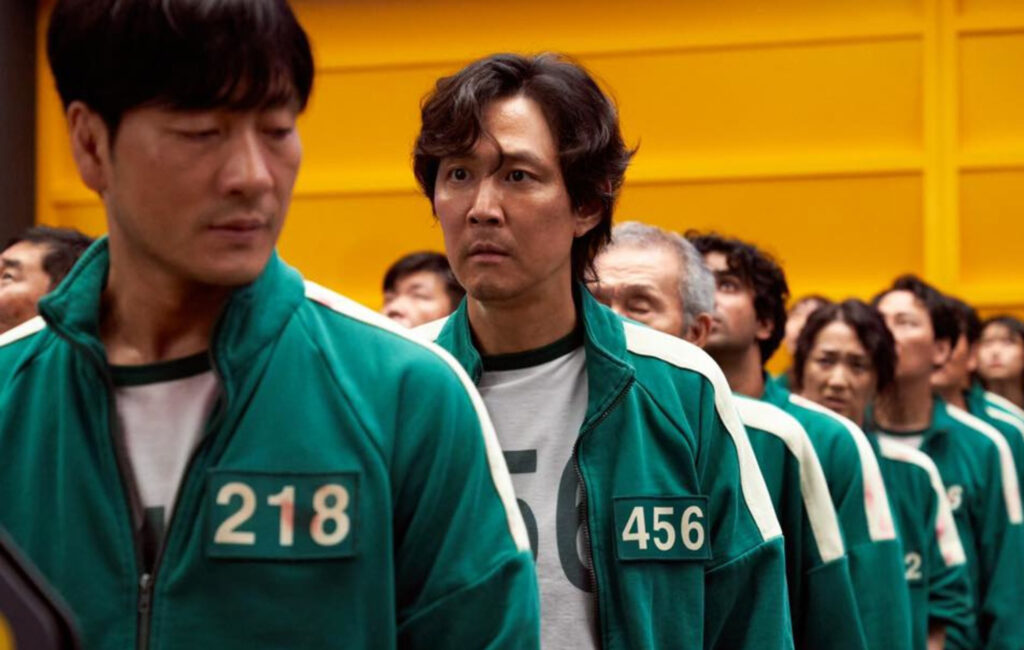
Our Take: 5/5 Stars
“Squid Game” has become Netflix’s most popular non-English language series in the world. The South Korean thriller debuted on Sept. 17 and has spread its tentacles across the globe, sitting at No. 1 show on Netflix in 90 different countries and on track to becoming the most-watched series ever on the streaming platform.
The K-drama follows a group of 456 contestants who choose to compete in a tournament of Korean children’s games in hopes of winning 45.6 billion Korean won (39 million USD) and starting their lives over, free of debt.
It is easy to get attached to the contestants as their rich backstories unfold on screen. Oh Il-nam (Oh Young-soon, “Queen Seon Duk”) is an old man with a brain tumor and nothing left to lose. Cho Sang-woo (Park Hae-soo, “Prison Playbook”) is a graduate of Seoul National University and the pride of his hometown who is on the run for stealing money from business clients. Kang Sae-byeok (Jung Ho-yeon) is a North Korean defector on a mission to reunite her family.
In the middle of it all is Seong Gi-hun (Lee Jung-jae, “Operation Chromite”), who is not easy to root for at first. His gambling habit, poor treatment of his mother and inability to care for his daughter make his character unappealing and his situation dreary. Time and time again, his self-defeating actions let viewers down. However, the tournament reveals Gi-hun’s kind heart.
Gi-hun awakens at a mysterious venue along with the 455 other players, all in dire financial situations and tantalized by the cash prize. Placed in a life-or-death situation, the audience becomes invested in seeing Gi-hun succeed as he tries to maintain his humanity in an inhumane tournament that encourages a “win-at-all-costs” attitude.
The players quickly find out that losing any of the games has deadly consequences, yet they still choose to risk their lives in the games rather than return to their harsh realities.
“Squid Game” turns desperation into a blood sport. The stakes of the outside world are as severe as the ones in the games. Throughout the tournament, the masked game controllers keep viewers guessing about what is in store next, but the true villains of the series are the inequality and class anxiety that brings the contestants to gamble their lives for the sake of escaping financial ruin.
“Squid Game” emphasizes the idea that no one is inherently good or bad. The contestants of the games have their faults, yet their situations make their actions relatable to audiences across the globe. The series draws viewers in with meticulously crafted scenes aimed to keep the audience at the edge of their seats. Each well-paced episode ends with a cliffhanger, making “Squid Game” easy to binge. A notable tug of war scene pulls viewers in only to leave them hanging as Gi-hun and his team step forward towards almost certain death.
Each game takes place in a nostalgic childhood-like setting with a deadly twist, and the music is hauntingly appropriate, switching between classical, jazz and traditional grim themes that add to the thrilling narrative. Along with immersive cinematography and exhilarating fight sequences, the series keeps viewers hooked.
The language barrier has not stopped the show from climbing to the top. Its popularity around the world can be attributed to its suspenseful storyline and the well-crafted cinematography, sets, score and cast.
However, it is important to note that “Squid Game” allegorically reflects capitalist society. The audience can sympathize with characters because, in the end, their motivation to gain financial security is something viewers around the globe can relate to no matter their background. This underlying theme is what makes the drama so compelling as it adds to the relatable nature of the show.
“Squid Game” most certainly lives up to its global popularity. The show takes a simple concept and artfully turns it into a deeper reflection of today’s society, making the K-drama a must-watch.
